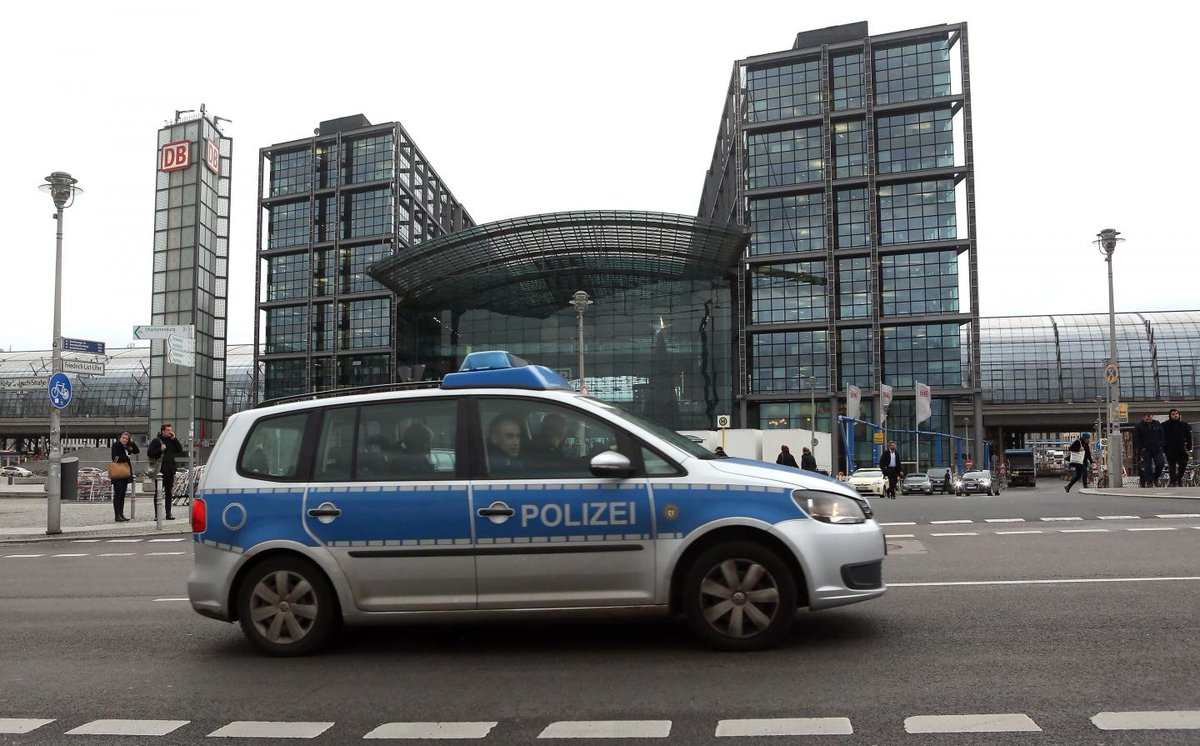Mass evacuation in Berlin after discovery of British World War II bomb
Operation to diffuse 500kg bomb causes widespread disruption in German capital

A free daily email with the biggest news stories of the day – and the best features from TheWeek.com
You are now subscribed
Your newsletter sign-up was successful
Thousands of Berliners have been told to evacuate after the discovery of a World War II bomb in the city centre.
Police said the 500kg (1,100lb) bomb, believed to have been made in the UK, posed no immediate danger but the operation was expected to cause transport chaos in the German capital.
The 800-metre (2,625 ft) exclusion zone “includes Berlin Hauptbahnhof, the city’s main train station, as well as the German finance and transport ministries, foreign embassies, and a museum”, says The Independent.
The Week
Escape your echo chamber. Get the facts behind the news, plus analysis from multiple perspectives.

Sign up for The Week's Free Newsletters
From our morning news briefing to a weekly Good News Newsletter, get the best of The Week delivered directly to your inbox.
From our morning news briefing to a weekly Good News Newsletter, get the best of The Week delivered directly to your inbox.
Rail company Deutsche Bahn and other transport operators “have warned of large-scale disruption for trains, trams and buses in the area”, says the BBC.
“This is a common occurence in Berlin, obviously there were a lot of unexploded bombs here ... But not generally this close to the city center, we're 300-400 meters from the main train station. The station will be completely closed down, all trains will be diverted,” Deutsche-Welle’s Rebecca Ritters reported.
Berlin police tweeted a photo of their bomb disposal team at the scene, poised to defuse what they described as “the source of all the evil”.
The deactivation of the bomb is scheduled to begin at 11.30am but it is not known how long it will take.
A free daily email with the biggest news stories of the day – and the best features from TheWeek.com
“It depends on how long the evacuation takes and of course the condition of the bomb,” police spokesman Martin Halweg told the Tagesspiegel newspaper.
Despite the disruptions to traffic, Ritters said “People are in pretty high spirits ... People have been seeing it as a bit of a novelty.”
More than seven decades after the end of World War II, Germany “still discovers more than 2,000 tonnes of live bombs and munitions every year”, says Reuters.
-
 The EU’s war on fast fashion
The EU’s war on fast fashionIn the Spotlight Bloc launches investigation into Shein over sale of weapons and ‘childlike’ sex dolls, alongside efforts to tax e-commerce giants and combat textile waste
-
 How to Get to Heaven from Belfast: a ‘highly entertaining ride’
How to Get to Heaven from Belfast: a ‘highly entertaining ride’The Week Recommends Mystery-comedy from the creator of Derry Girls should be ‘your new binge-watch’
-
 The 8 best TV shows of the 1960s
The 8 best TV shows of the 1960sThe standout shows of this decade take viewers from outer space to the Wild West
-
 Epstein files topple law CEO, roil UK government
Epstein files topple law CEO, roil UK governmentSpeed Read Peter Mandelson, Britain’s former ambassador to the US, is caught up in the scandal
-
 Iran and US prepare to meet after skirmishes
Iran and US prepare to meet after skirmishesSpeed Read The incident comes amid heightened tensions in the Middle East
-
 Israel retrieves final hostage’s body from Gaza
Israel retrieves final hostage’s body from GazaSpeed Read The 24-year-old police officer was killed during the initial Hamas attack
-
 China’s Xi targets top general in growing purge
China’s Xi targets top general in growing purgeSpeed Read Zhang Youxia is being investigated over ‘grave violations’ of the law
-
 Panama and Canada are negotiating over a crucial copper mine
Panama and Canada are negotiating over a crucial copper mineIn the Spotlight Panama is set to make a final decision on the mine this summer
-
 Why Greenland’s natural resources are nearly impossible to mine
Why Greenland’s natural resources are nearly impossible to mineThe Explainer The country’s natural landscape makes the task extremely difficult
-
 Iran cuts internet as protests escalate
Iran cuts internet as protests escalateSpeed Reada Government buildings across the country have been set on fire
-
 US nabs ‘shadow’ tanker claimed by Russia
US nabs ‘shadow’ tanker claimed by RussiaSpeed Read The ship was one of two vessels seized by the US military